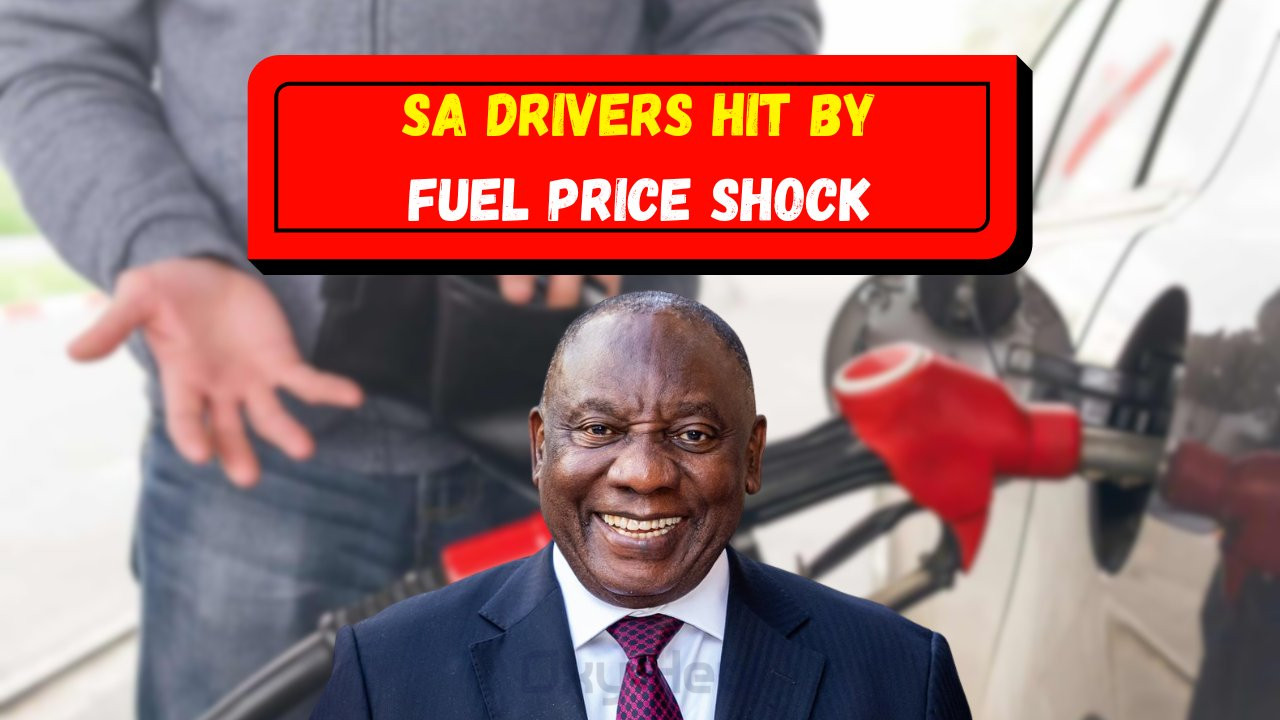Record-breaking fuel prices: South Africans are bracing for a sharp increase in fuel costs come June, marking an unprecedented rise in prices. The surge has been attributed to global economic factors and a weakening rand, which have made fuel imports significantly more expensive. This development is expected to have widespread effects on the economy and daily life, impacting everything from transportation costs to the price of goods and services.
Impact of Fuel Price Surge on South Africans
The effects of these record-breaking fuel prices will ripple through various sectors. For the average South African, this means higher costs at the pump, which could lead to increased public transportation fares and higher delivery fees for goods. The agriculture and manufacturing sectors are also likely to feel the pinch, as fuel is a critical component in their operations.
Key Areas Affected:
div id="div-gpt-ad-1748372014361-0">
- Transportation costs are expected to rise, affecting daily commuters and businesses reliant on logistics.
- Increased costs for goods and services as businesses pass on the added expenses to consumers.
- The agricultural sector may see an uptick in production costs, influencing food prices.
- Potential inflationary pressures as the cost of living increases.
- Strain on household budgets, particularly affecting low-income families.
- Possible reduction in travel and tourism activities due to higher transportation expenses.
As these changes unfold, consumers are urged to adapt by seeking alternatives and optimizing their fuel usage wherever possible.
Strategies for Managing Fuel Costs
With fuel prices reaching record highs, South Africans are looking for ways to mitigate the impact. There are several strategies that individuals and businesses can adopt to manage these increased costs effectively.
One approach is to enhance fuel efficiency by keeping vehicles well-maintained and adopting fuel-saving driving habits. Additionally, carpooling and using public transportation can help share the expense. For businesses, optimizing logistics and exploring alternative energy sources can be viable options to reduce dependency on traditional fuels.
| Strategy |
Benefits |
Challenges |
Implementation |
Cost |
| Carpooling |
Reduces individual fuel cost |
Coordination required |
Moderate |
Low |
| Public Transport |
Cost-effective for commuters |
Limited routes |
Easy |
Low |
| Vehicle Maintenance |
Improves fuel efficiency |
Regular checks needed |
Moderate |
Variable |
| Fuel-efficient Vehicles |
Long-term savings |
High initial cost |
Complex |
High |
| Alternative Energy |
Reduces fuel dependency |
Technology adoption |
Complex |
High |
Long-term Solutions for Fuel Price Stability
While immediate measures are essential, it’s crucial to consider long-term solutions to stabilize fuel prices. Investing in renewable energy sources such as solar and wind can reduce reliance on imported fuels. Encouraging the development of local energy infrastructure can also play a significant role in achieving energy independence.
Government Initiatives
- Subsidizing renewable energy projects to encourage investment.
- Implementing policies to regulate fuel prices and protect consumers.
- Supporting research and development in alternative fuels and technologies.
- Encouraging public-private partnerships in energy sectors.
- Strengthening economic policies to stabilize the rand.
Such initiatives require collaboration between the government, private sector, and consumers to create a sustainable energy future for South Africa.
Economic Implications of Fuel Price Increases
The economic implications of rising fuel prices are profound, affecting various aspects of the South African economy. As transportation costs rise, businesses may struggle with increased operational expenses. This could lead to layoffs or reduced hiring, impacting employment rates.
Furthermore, higher fuel prices can lead to inflation, as the cost of goods and services rises. This scenario could result in decreased consumer spending, slowing economic growth. Policymakers must carefully monitor these changes and implement measures to cushion the impact on the economy.
Despite these challenges, there are opportunities for growth. By investing in alternative energy and innovative technologies, South Africa can diversify its energy sources and reduce vulnerability to global market fluctuations.
- Inflation Risks
- Potential slowdown in economic growth.
- Opportunities
- Investment in renewable energy.
- Job Creation
Consumer Adaptation Strategies
As fuel prices soar, consumers are encouraged to adopt strategies that can ease the financial burden. Simple measures such as reducing non-essential travel, optimizing routes, and maintaining a steady driving speed can significantly save fuel costs.
- Plan errands to minimize travel distances.
- Use fuel-efficient vehicles or consider hybrid options.
- Engage in community car-sharing programs.
- Stay informed about fuel-saving tips and technologies.
- Monitor fuel prices to buy when prices drop.
- Consider telecommuting to reduce daily commutes.
Business Adaptation Strategies
Businesses can also play a crucial role in adapting to fuel price increases. By optimizing supply chains and logistics, companies can reduce fuel consumption and manage costs. Investing in technology that enhances efficiency and reduces energy use is also beneficial.
| Strategy |
Action |
Benefit |
Cost |
Implementation |
| Logistics Optimization |
Streamline delivery routes |
Cost savings |
Medium |
Moderate |
| Energy-efficient Equipment |
Upgrade machinery |
Long-term savings |
High |
Complex |
| Remote Work Policies |
Enable telecommuting |
Reduced commute costs |
Low |
Easy |
| Supply Chain Innovation |
Use alternative transport |
Diversified logistics |
Variable |
Complex |
| Alternative Fuels |
Invest in biofuels |
Reduced dependency |
High |
Complex |
| Partnerships |
Collaborate with energy providers |
Shared resources |
Variable |
Moderate |
FAQ Section
How will the fuel price increase affect daily commuters?
Daily commuters will face higher transportation costs, which may lead to increased public transport fares or driving expenses.
What long-term measures can reduce fuel dependency?
Investing in renewable energy sources and enhancing local energy infrastructure can significantly reduce fuel dependency.
Are there government policies to mitigate the impact of fuel prices?
Yes, the government is exploring renewable energy projects and implementing policies to regulate prices and support consumers.
How can businesses cope with rising fuel costs?
Businesses can optimize logistics, invest in energy-efficient technology, and consider alternative energy sources to manage costs.
What strategies can individuals adopt to save on fuel?
Individuals can carpool, use public transport, maintain their vehicles, and adopt fuel-saving driving habits.
Departmental Contact Details
Department of Energy
Email: [email protected]
Helpline: 0800 111 456
Website: www.energy.gov.za
South African Petroleum Industry Association
Email: [email protected]
Helpline: 0860 123 456
Website: www.sapia.co.za
National Treasury
Email: [email protected]
Helpline: 0861 123 456
Website: www.treasury.gov.za
Consumer Protection Bureau
Email: [email protected]
Helpline: 0800 007 007
Website: www.cpb.gov.za
South African Chamber of Commerce
Email: [email protected]
Helpline: 0861 456 789
Website: www.sacc.org.za






